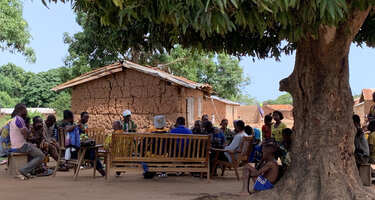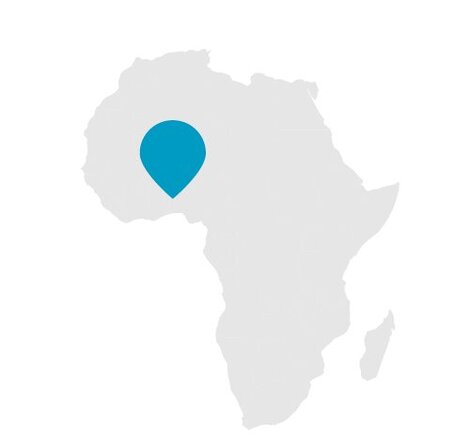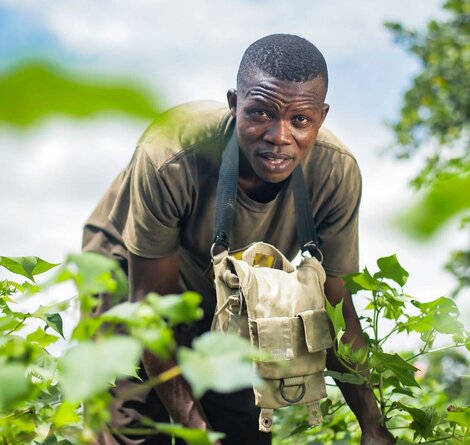Sub Saharan Cotton Initiative (SSCI): Fostering strong partnerships to integrate Benin’s growing organic cotton sector into global supply chains
Together with our partners we support smallholder farmers to convert to organic farming and scale organic cotton production in Benin, which promises economic, social and environmental benefits. In response to the new EU Corporate Sustainability Due Diligence Directive (CSDDD), demand for traceable, organic certified cotton in Europe is set to rise. To help meet this demand and position Benin as a key supplier of organic cotton, this project builds on the success of the GIZ co-funded project, "Growing Benin’s Organic Cotton Sector".
The project at glance
Cotton is a cornerstone of Benin’s economy, but the sector faces significant challenges. Two-thirds of the country’s land is degraded, reducing soil fertility and resilience. At the same time, rising agrochemical costs are placing financial strain on farmers. However, the new EU Corporate Sustainability Due Diligence Directive (CSDDD) is expected to drive demand for traceable, organic certified cotton- creating new opportunities for Benin's cotton sector.
To seize this opportunity, the project takes a comprehensive approach. It begins with sensitizing cotton farmers to the benefits of organic cotton production and supporting them throughout the conversion process. Farmers receive hands-on training through farmer field schools to adopt sustainable practices. Organic cotton is also being integrated into the national extension system through partnerships with SODECO and the Association Interprofessionnelle du Coton (AIC), supported by the development of training manuals and capacity building for extension agents. Productivity is enhanced by testing and scaling up high-yielding cotton varieties adapted to organic farming. Additionally, the project promotes value addition - particularly for women - by equipping farmer cooperatives with business skills, financial management tools, and access to markets to diversify and increase their incomes.
The project also forges links with fashion brands and retailers. Aid by Trade Foundation (AbTF)’s and Reinhart's growing number of commercial allies seeking sustainable raw materials provides a strong foundation for this goal. Establishing these connections will enhance sustainability in the supply chain and promote ethical sourcing practices in line with the new EU CSDDD legislation, helping Benin’s organic cotton producers retain and expand their access to European markets.
Partners
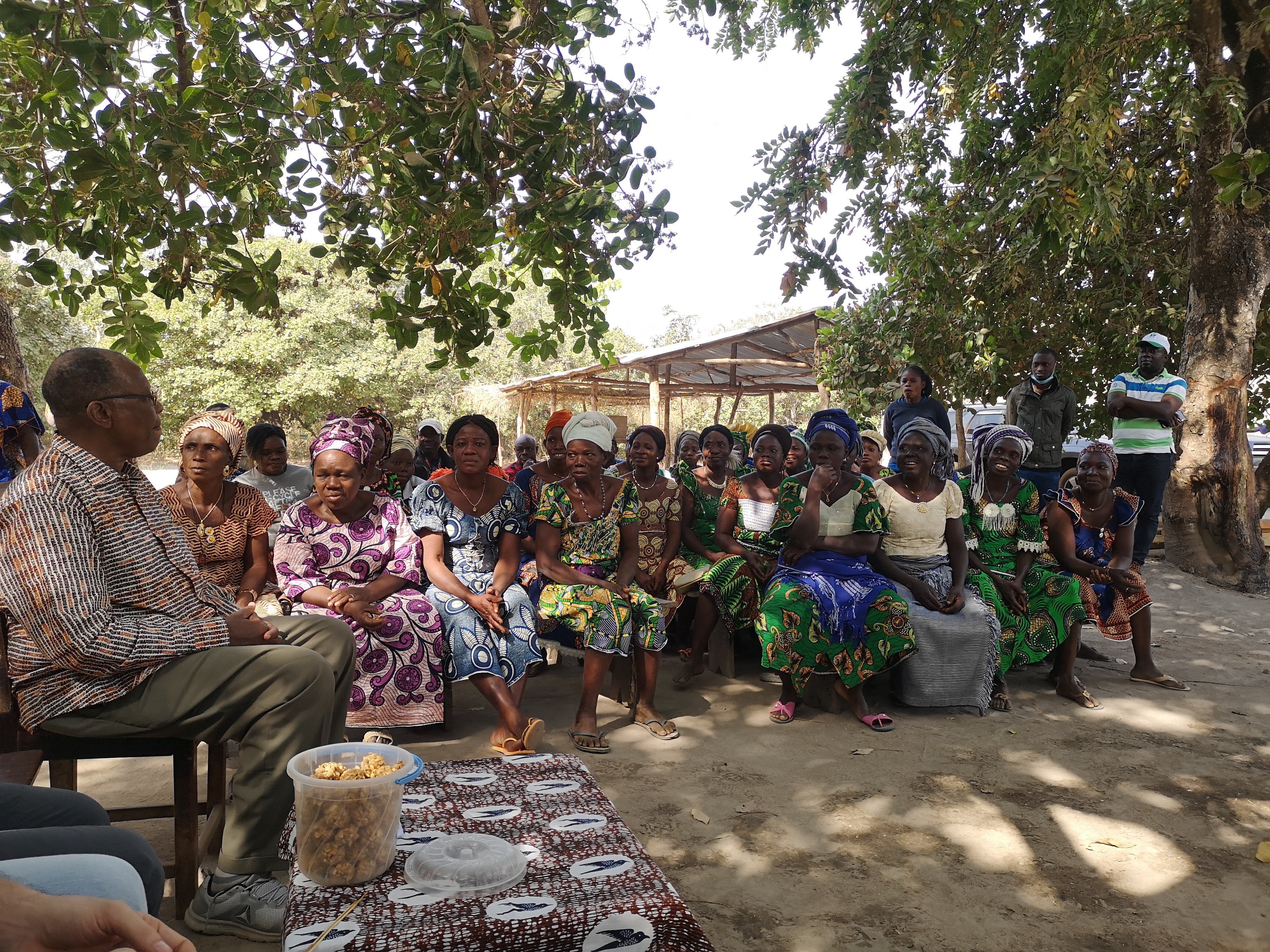
- Pesticide Action Network (PAN) UK:
Since 1982 Pesticide Action Network (PAN) UK has been the only UK non-profit organisation exclusively dedicated to tackling harms caused by chemical pesticides and supporting the identification and adoption of agroecological alternatives. - Paul Reinhart AG:
Founded in 1788, the Swiss family business is the oldest and one of the world's leading cotton merchants. It has extensive experience in West Africa, including in Benin, and particular expertise in organic cotton and of buying cotton in countries with smallholder structures. - Aid by Trade Foundation (AbTF):
The foundation was established in 2005 by Prof. Dr. Michael Otto with the aim of helping small farmers in Africa to help themselves through trade and to improve their living and working conditions, as well as to promote the protection of our environment. With one of the world's leading standards for sustainable cotton, Cotton made in Africa (CmiA), the foundation implements its goals. The income from licences for CmiA-certified cotton is reinvested in the cotton-growing regions of sub-Saharan Africa, following the mechanisms of a social business. - Organisation Béninoise pour la Promotion de l'Agriculture Biologique (OBEPAB):
OBEPAB is a Beninese NGO founded in 1997 that provides training and technical support to cotton farmers on organic production methods, certification, and marketing. It promotes resilient and diverse smallholder farming systems and community initiatives that benefit women and men in the cotton growing areas of rural Benin. - Société pour le Developpement de Coton (SODECO):
SODECO was established in 2008 as part of the privatization of the cotton sector in Benin. It plays a key role in the ginning, certification, trading and financial arrangements within Benin’s cotton sector.
Outlook
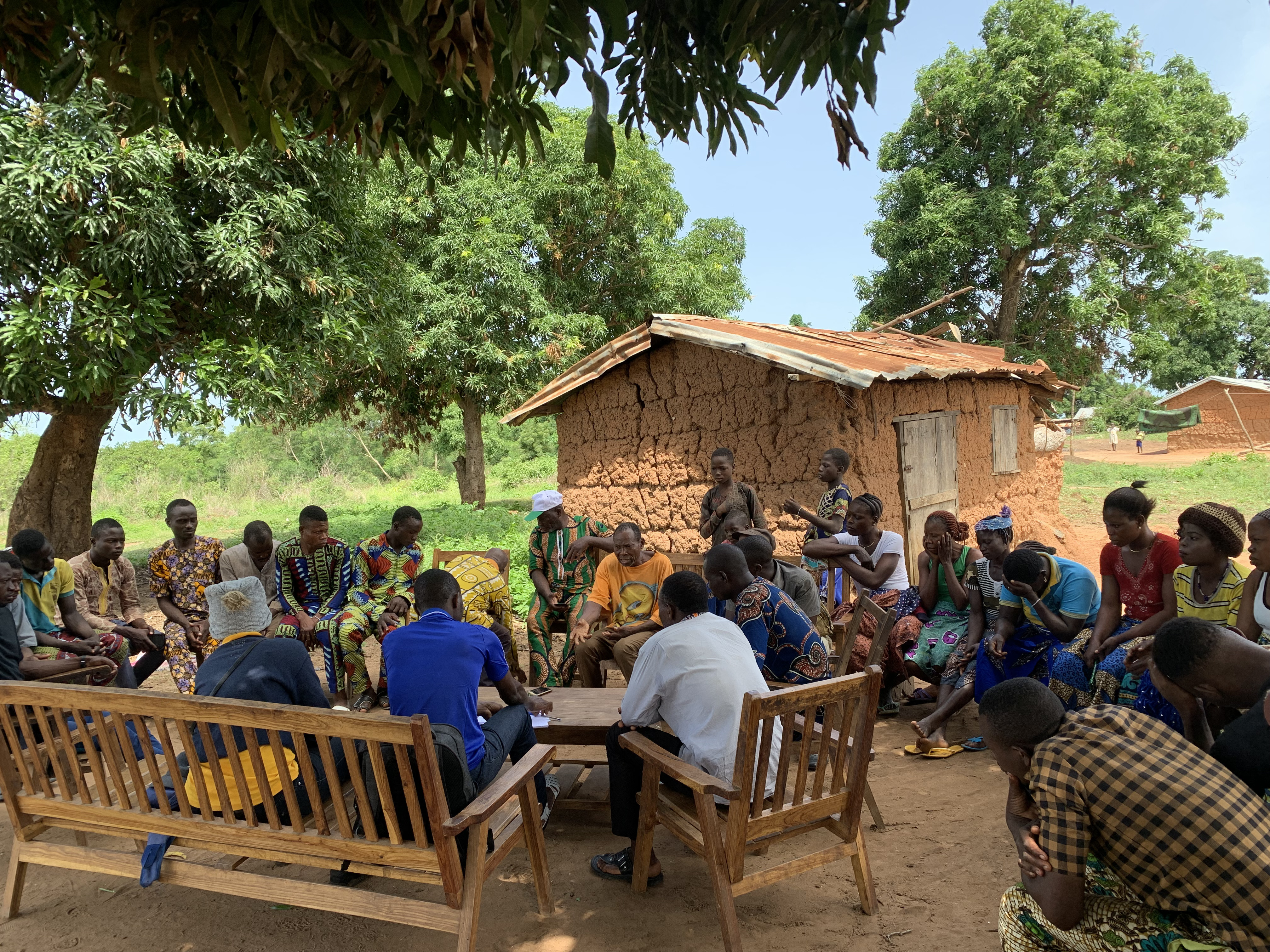
Farmer Training:
- Train 1,500 new farmers in organic cotton using Farmer Field School (FFS) methods.
- Provide refresher training for existing organic cotton farmers.
- Train 50 lead farmers in FFS methodology to support new farmer training.
Field Trials & Research:
- Test labour-saving technologies (e.g. mechanical weeders, sowers).
- Trial local organic inputs (e.g. biofertilizer, biochar).
- Conduct participatory soil health and biodiversity research (e.g. ‘soil your undies’).
Business Development and Income diversification:
- Train farmer groups in business skills, market access, and financial management.
- Provide value addition training and small equipment grants for organic products (e.g. shea butter, cashew, peanut).
- Support production and sale of organic inputs.
Technical & Production Support:
- Offer support for diversified organic crop production (e.g. cashew, soya, peanut, shea).
- Explore ways to enhance the quality and value of locally hand-spun organic cotton yarn.
Gender & Literacy Support:
- Conduct gender sensitisation training and promote women’s land access, training, and leadership.
- Provide functional literacy and numeracy classes for women producers.
Cooperative Strengthening:
- Train cooperatives in governance, management, and Internal Control Systems aligned with organic certification requirements.
